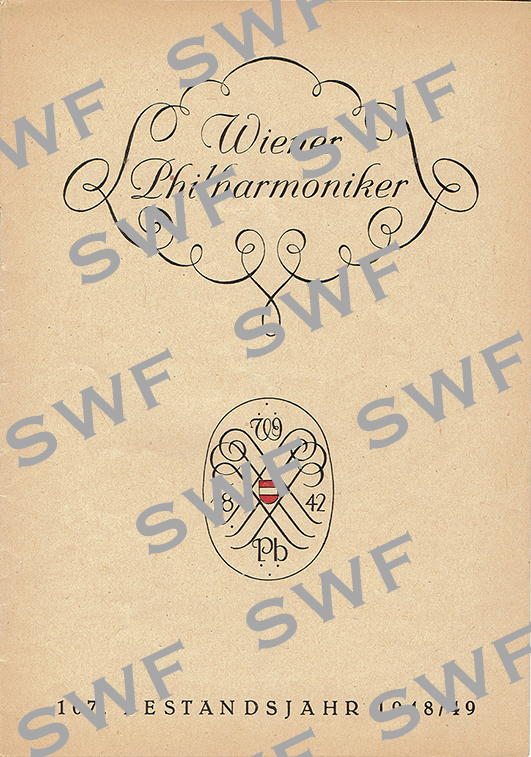Concert in Vienna, 19 December 1948
A slightly bewildering concert.
Granted, Brahms's Fourth Symphony takes up the entire second part of the concert, and need not concern us further. But in the first half, Furtwängler presented two works that were not part of his everyday repertoire.
First, the Nordic Rhapsody of the Austrian Joseph Marx (1882-1964), or rather the Symphonic Rhapsody which formed the first movement of this work, composed in 1929 (published by Universal in Vienna) and inspired by Pierre Loti’s novel An Iceland Fisherman. Marx expressly approved this partial performance. Furtwängler seems to have had little to do with this master of lush orchestration and flowing invention; previously he had conducted only the “Romantic” Concerto, with Gieseking as soloist. He would nonetheless send his older contemporary warm greetings (below) on the occasion of his 70th birthday!
After these nine introductory minutes came the first performance in the Philharmonie of Richard Strauss’s Concerto for Oboe, one of the late works from what has been called his Indian summer. The score, composed in the autumn of 1945 and premièred in 1946, is interpreted by Hans Kamesch (1901-1975), the long-serving oboist of the Philharmonic. Furtwängler was clearly quite at home with this latter-day Strauss — Metamorphosen, the Four Last Songs... Quite a contrast between Marx’s intoxicated, verbose post-romantic score and the rare finesse and Mozartian clarity of the Strauss concerto!
But another part of the booklet also merits our interest. On page 2 the “Vorstand”, the orchestra’s spokesman, announces that the concert following this first performance, under the baton of the eminent Swiss conductor Volkmar Andreae, would include the recently discovered Symphonic Prelude attributed to Bruckner. In the event this première did not take place there; the Bruckner scholar Leopold Nowak expressed doubts, and others joined him. The work would be first performed in Munich by Fritz Rieger, but it has never been definitively attributed to Bruckner; the debate continues to this day.


